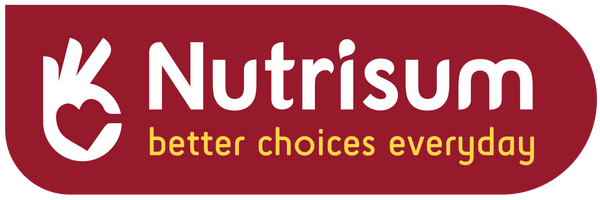Introduction:
Sugar, while delicious and satisfying in the moment, can wreak havoc on our health if consumed in excess. From weight gain to increased risk of chronic diseases like diabetes and heart disease, the consequences of a high-sugar diet are alarming. However, breaking free from sugar addiction and reducing intake can be challenging. In this blog, we'll explore effective strategies to help you curb sugar cravings and adopt a healthier approach to managing your sugar intake.
Understanding Sugar and Its Effects:
Before diving into strategies for reducing sugar intake, it's essential to understand the impact of sugar on our bodies. Sugar, particularly refined sugars like sucrose and high-fructose corn syrup, can lead to spikes and crashes in blood sugar levels, contributing to energy fluctuations and cravings. Additionally, excess sugar consumption has been linked to weight gain, inflammation, and an increased risk of chronic diseases.
Tips for Reducing Sugar Intake:
- Read Labels: Be mindful of hidden sugars in packaged foods and beverages. Check ingredient lists for terms like sucrose, high-fructose corn syrup, and other sweeteners.
- Choose Whole Foods: Opt for whole, unprocessed foods like fruits, vegetables, lean proteins, and whole grains, which are naturally lower in sugar and higher in nutrients.
- Limit Sugary Drinks: Cut back on sugary beverages like soda, fruit juice, and sweetened coffee drinks, which can contribute significantly to daily sugar intake.
- Practice Mindful Eating: Pay attention to hunger and fullness cues, and eat slowly to savor flavors and textures without overindulging in sugary treats.
- Plan Ahead: Prepare healthy snacks and meals in advance to avoid reaching for sugary snacks when hunger strikes.
- Stay Hydrated: Drink plenty of water throughout the day to stay hydrated and reduce cravings for sugary beverages.
- Experiment with Substitutes: Explore natural sweeteners like stevia, monk fruit, and erythritol as alternatives to refined sugars in recipes and beverages.
Managing Sugar Cravings:
- Distract Yourself: When cravings strike, distract yourself with a non-food-related activity like going for a walk, practicing deep breathing, or engaging in a hobby.
- Address Underlying Causes: Identify triggers for sugar cravings, such as stress, boredom, or emotional eating, and develop healthy coping mechanisms to address them.
- Practice Moderation: Allow yourself to enjoy occasional treats in moderation, but be mindful of portion sizes and frequency to prevent overindulgence.
- Choose Nutrient-Dense Alternatives: Reach for nutrient-dense snacks like fresh fruit, nuts, Greek yogurt, or dark chocolate to satisfy sweet cravings while nourishing your body.
- Get Support: Seek support from friends, family, or a healthcare professional if you're struggling to reduce sugar intake or manage cravings effectively.
References:
- Malik, V. S., & Hu, F. B. (2015). Sugar-sweetened beverages and health: where does the evidence stand? The American Journal of Clinical Nutrition, 101(5), 1253–1254. https://doi.org/10.3945/ajcn.114.103747
- Lustig, R. H., Schmidt, L. A., & Brindis, C. D. (2012). Public health: The toxic truth about sugar. Nature, 482(7383), 27–29. https://doi.org/10.1038/482027a
- Ziauddeen, H., & Fletcher, P. C. (2013). Is food addiction a valid and useful concept? Obesity Reviews, 14(1), 19–28. https://doi.org/10.1111/obr.12007
- DiNicolantonio, J. J., O'Keefe, J. H., & Wilson, W. L. (2018). Sugar addiction: is it real? A narrative review. British Journal of Sports Medicine, 52(14), 910–913. https://doi.org/10.1136/bjsports-2017-097971
Conclusion:
Reducing sugar intake and managing cravings requires dedication, mindfulness, and patience. By adopting a whole-foods-based diet, reading labels, practicing moderation, and addressing underlying triggers, you can gradually break free from sugar addiction and embrace a healthier lifestyle. Remember that small changes can lead to significant improvements in your overall health and well-being. With determination and support, you can master sugar and reclaim control over your diet and health.

